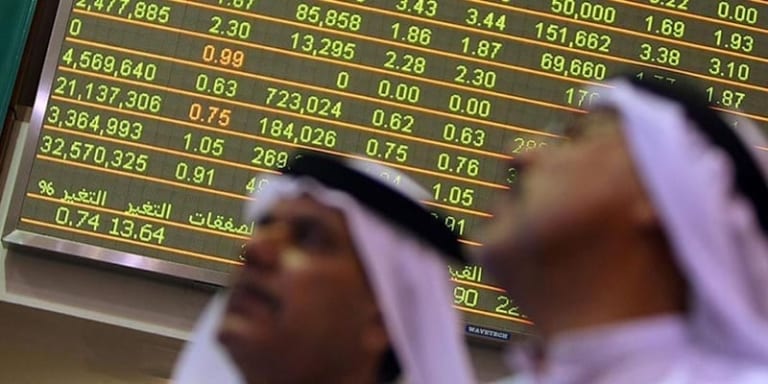The Israel-Gaza Conflict Could Potentially Disrupt Global Oil Prices And Supply Chain Including India
The ongoing Israel-Gaza conflict has sent shockwaves through global oil markets, raising concerns about potential disruptions in the supply chain and the subsequent impact on oil prices. Oil prices have climbed over fears the Israel-Hamas war could embroil the wider petroleum-producing Gulf region and threaten global output. India is particularly vulnerable to any price fluctuations in global oil prices. The surge in prices could also seep into India's import bill. A protracted Israel-Hamas conflict could spur oil prices beyond India's comfort zone, and even if the government holds retail fuel prices ahead of critical elections, wholesale prices may spike, and a higher import bill could pressure the rupee, according to experts.

The Israel-Gaza War Sparks Concerns of Oil Price Surge
The ongoing conflict between Israel and Hamas in the Gaza Strip has reverberated far beyond the Middle East, sending shockwaves through global oil markets and raising questions about its potential impact on gas costs and inflation.
The war has escalated concerns among traders and analysts, who fear that it could disrupt global oil supply and lead to a significant spike in oil prices.
- Crude oil prices rose as much as 5% after the attacks.
- Brent crude, the international benchmark, climbed by $2.25 a barrel to $86.83.
- Oil prices jumped nearly 6% on Friday after Israel began ground raids into Gaza.
While a rise in oil prices might seem like an isolated concern for those who don’t directly work in the petroleum industry, it holds significant implications for the broader economy and consumers due to its influence on various industries and products, ranging from gasoline to plastics.

Crude oil prices play a vital role in determining the cost of goods, as many products’ production and transportation processes are reliant on oil.
Therefore, any fluctuation in oil prices can have a cascading effect on the prices of numerous commodities, affecting everything from transportation costs to the prices of everyday items.
The recent surge in oil prices, attributed to the Israel-Gaza conflict, has once again brought this interconnection into the spotlight.
The surge in oil prices is a direct consequence of concerns that the conflict might expand beyond its current scope and embroil the broader Middle East, particularly the petroleum-producing Gulf region.
Analysts and experts have voiced their apprehension about the potential consequences of such an escalation, which include the disruption of oil output from the Middle East, endangering global oil production, and the possibility of the conflict spreading to other countries.
Timothy Fitzgerald, a professor of business economics at Texas Tech University who specializes in the petroleum industry, explains that the market is reacting to fears of a worst-case scenario where the Israel-Gaza conflict spreads throughout the region and disrupts global oil trade.
However, the ultimate impact of the conflict on oil prices remains uncertain, as it hinges on various geopolitical factors and the trajectory of the ongoing war.
One notable aspect to consider is that neither Southern Israel nor the Gaza Strip hosts significant oil and gas infrastructure.
However, the broader Gulf region plays a crucial role in global oil production and transportation, making it vulnerable to any disruptions stemming from regional conflicts.
In a statement, S&P Global Commodity Insights emphasized that global energy markets are closely monitoring the situation, as a significant conflict in the Gulf region could severely affect worldwide oil supply and lead to soaring prices.

The Big Choke Point
One of the key concerns revolves around Iran, which supports the Hamas group. Although Iran has denied direct involvement in the conflict, it remains a significant oil producer and holds influence over the Strait of Hormuz, a critical trading route responsible for transporting about 15% of the global oil supply.
If the situation escalates, Iran could potentially disrupt energy flows through the Strait of Hormuz, causing a major shock to oil markets.
Oil Prices May Go Higher
The potential consequences of the conflict expanding beyond Israel and Gaza are complex.
While an escalation could drive crude oil prices higher, it doesn’t necessarily mean that gas prices will immediately follow suit.
Seasonal factors play a role, with the shift from busy summer travel to quieter fall months reducing demand for gasoline.
In the event of a sustained rise in oil prices, this decrease in demand could help prevent significant increases in gas prices.
However, a prolonged period of elevated oil prices would eventually result in higher gas prices, impacting consumers at the pump.

Base Inflation
Beyond gasoline, a wide range of products could experience price increases if oil costs influence the production and transportation of goods, prompting companies to pass on the added expenses to consumers; thus, it could potentially contribute to inflationary pressures.
Inflation, which has eased since its peak last summer but remains above normal levels, poses challenges for central banks like the Federal Reserve.
A surge in oil prices can further complicate efforts to reduce inflation while avoiding a recession, known as achieving a “soft landing.”
Geopolitical Complexity
The Israel-Gaza conflict is viewed as one of the most significant geopolitical risks to oil markets since Russia’s invasion of Ukraine.
While Israel is not a major energy producer, the risk lies in the potential for the conflict to spread to major energy producers in the Middle East, which could disrupt oil and gas flows.
Several major complications could arise if the conflict escalates; for example, the United States might tighten or enhance the enforcement of sanctions on Iran if it is implicated in the attack on Israel by Hamas.
This could further strain an already undersupplied oil market and lead to retaliation from Iran, potentially disrupting energy flows from neighbouring OPEC countries through the Strait of Hormuz.
Additionally, ongoing efforts to normalize relations between Saudi Arabia and Israel, with the potential for increased oil output, could be derailed, impacting global oil prices.

How Has OPEC+ Responded?
Saudi Arabia’s Energy Minister, Prince Abdulaziz, recently conveyed that OPEC and OPEC+ have encountered numerous challenges in the past and emphasized the strong bond among its members, suggesting that their unity remains unshaken despite the current conflict.
On October 12, Iraq’s oil ministry spokesman asserted that OPEC+ (comprising the Organization of the Petroleum Exporting Countries and its allied nations led by Russia) follows a measured approach and refrains from hasty reactions to market fluctuations.
Russian Deputy Prime Minister Alexander Novak, in a statement made on Thursday, suggested that prevailing oil prices have already considered the ongoing conflict, implying that market participants perceive the associated risks as manageable.
Russian President Vladimir Putin reaffirmed this week that OPEC+ coordination will persist to ensure the predictability of the oil market.
Impact On India
While Morgan Stanley has assessed that immediate threats to oil supply are minimal, it cautioned that the situation could change if the conflict extends to other regions.
India is particularly susceptible to global oil price fluctuations, which could impact its import expenses.
In the event of a prolonged Israel-Hamas conflict, India might encounter oil price spikes that exceed its comfort level; this even if the government keeps retail fuel prices stable, wholesale prices may surge, leading to a higher import bill and placing pressure on the Indian rupee, according to experts.
Beyond the short-term market effects, Bank of Baroda’s chief economist, Madan Sabnavis, has articulated that if the war persists for a fortnight or longer, it will significantly alter the dynamics of the oil market.

Crude oil prices surging beyond $90 per barrel could pose challenges for the global economy and India.
Mr. Sabnavis pointed out that Iran’s involvement in the conflict could disrupt sea routes, leading to increased transportation and insurance costs.
Higher crude prices would impact India’s trade balance and current account deficit, subsequently straining the Indian rupee.
For the government, there could be fiscal repercussions with elections approaching in various states and the Lok Sabha election in 2024, so raising fuel prices might not be a viable option.
Consequently, higher costs would need to be absorbed either by oil marketing firms or the government.
The economist noted that the government could potentially manage retail inflation by keeping fuel prices steady, but wholesale price inflation would almost certainly rise.
Notably, some airlines have already raised fares following increases in aviation turbine fuel (ATF) prices, contributing to inflationary pressures.
Moreover, India’s export earnings might suffer, as Israel annually procures refined petroleum products worth approximately $5.5-6 billion from India.
The Last Bit
The Israel-Gaza conflict has proven to be more than a regional dispute; it has demonstrated its capacity to disrupt the delicate balance of global oil markets.
As we’ve seen, the surge in oil prices, a direct consequence of fears regarding the conflict’s expansion and its potential to disrupt the global supply chain, has far-reaching implications.
This conflict brings uncertainty, and its ultimate impact on oil prices remains unclear.
However, it has the potential to disrupt the Middle East and beyond, posing significant challenges to global oil supply, which could send prices soaring.
Beyond gasoline, the prices of various goods may increase as oil costs reverberate through production and transportation processes.
This, in turn, could contribute to inflationary pressures and pose challenges for central banks like the Federal Reserve as they seek to achieve a “soft landing.”
As we continue to monitor the developments in the Middle East, it is imperative to recognize that the Israel-Gaza conflict is more than a localized dispute; it is a global concern that affects us all.
The interconnectedness of oil prices with our daily lives, from the cost of transportation to the prices of consumer goods, as the situation continues to evolve, it’s important to keep a close watch on developments in the Middle East, as they have the potential to influence not only oil prices but also the broader global economy and consumer costs.
The uncertainty surrounding the conflict’s trajectory makes it a matter of great concern for markets, policymakers, and consumers alike.



